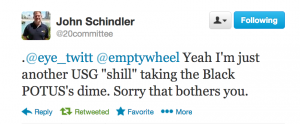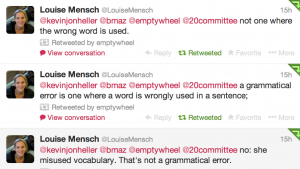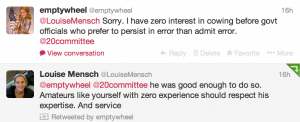Operation Stall
McClatchy has now posted an update to the tale of the CIA-SSCI spat.
It appears the following happened: Sometime around August, SSCI staffers working on a database at CIA discovered the internal CIA report, started under Leon Panetta, that corroborated the SSCI report. It also contradicted CIA’s official response to the SSCI Report.
Several months after the CIA submitted its official response to the committee report, aides discovered in the database of top-secret documents at CIA headquarters a draft of an internal review ordered by former CIA Director Leon Panetta of the materials released to the panel, said the knowledgeable person.
So having discovered even the CIA disagreed with the CIA’s response, the SSCI staffers took a copy with them.
They determined that it showed that the CIA leadership disputed report findings which they knew were corroborated by the so-called Panetta review, said the knowledgeable person.
The aides printed the material, walked out of CIA headquarters with it and took it to Capitol Hill, said the knowledgeable person.
Mark Udall raised the report in a December hearing. In January, CIA accused SSCI of absconding with the document.
After the CIA confronted the panel in January about the removal of the material last fall, panel staff concluded that the agency had monitored computers that they’d been given to use in a high-security research room at the CIA campus in Langley, Va., a McClatchy investigation found.
In response, the CIA asked DOJ to start an investigation.
Then there’s this weird question about the document. I’m not sure whether the issue is how the document first got included in the database at CIA, or whether it’s how it migrated to SSCI.
White House officials have held at least one closed-door meeting with committee members about the monitoring and the removal of the documents, said the first knowledgeable person.
The White House officials were trying to determine how the materials that were taken from CIA headquarters found their way into a data base into which millions of pages of top-secret reports, emails and other documents were made available to panel staff after being vetted by CIA officials and contractors, said the knowledgeable person.
My favorite part of this passage, though, is that contractors are helping choose with documents CIA’s overseers are allowed to see.
Because contractors should surely have more visibility into what the CIA does than CIA’s overseers, right?
All of which is to say the SSCI busted the CIA for lying in their official response to the Committee. And as a result, CIA decided to start accusing the Committee of breaking the law. And now everyone is being called into the Principal’s office for spankings.
This reminds me of what happened when Gitmo defense lawyers tried to independently identify the identities of their clients torturers. The lawyers got too close to the torturers, which set off a process that ultimately led to John Kiriakou, as the sacrificial lamb, going to jail.
But it seems that this is part of a larger CIA effort to stall. As McClatchy notes, CIA took 3 extra months to provide their initial response to SSCI. Then this erupted 2 months later. It has now been almost 3 months since Udall first revealed the existence of the Panetta report. Which brings us just 8 months away from an election in which the Democrats stand a good chance of losing the Senate, and with it, the majority on the Committee that might vote to declassify the report in defiance of CIA’s wishes. Which may be why Saxby Chambliss is fanning the CiA’s flames for them.
“I have no comment. You should talk to those folks that are giving away classified information and get their opinion,” Intelligence Committee Vice Chairman Saxby Chambliss (R-Ga.) said when asked about the alleged intrusions.
Stall, stall, stall. It’s what CIA did with the OPR report, it’s what they did with the torture tape investigation, and now this.
CIA may well suck at doing their job — getting intelligence that is useful to the country. But they sure are experts at outlasting any oversight onto their real activities.









